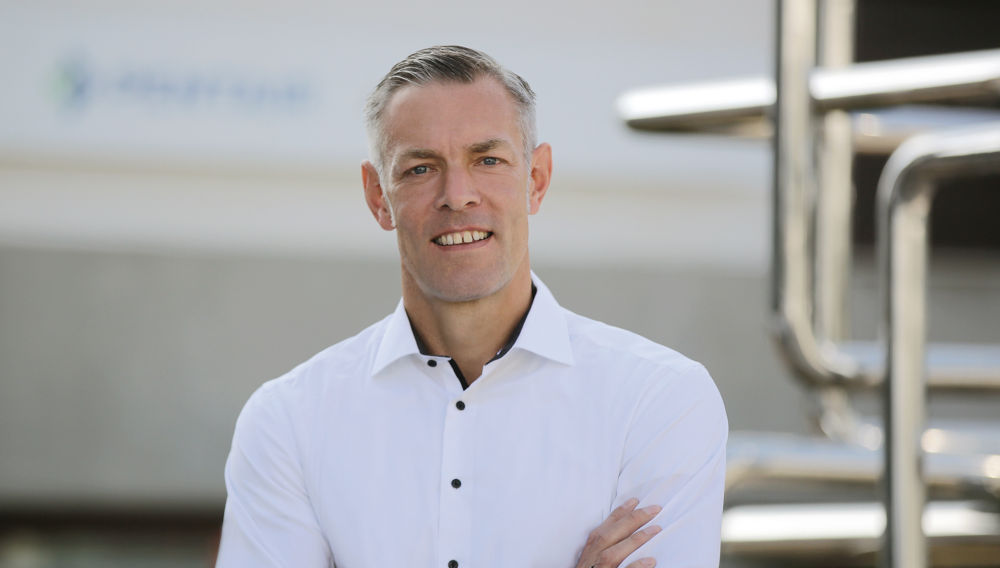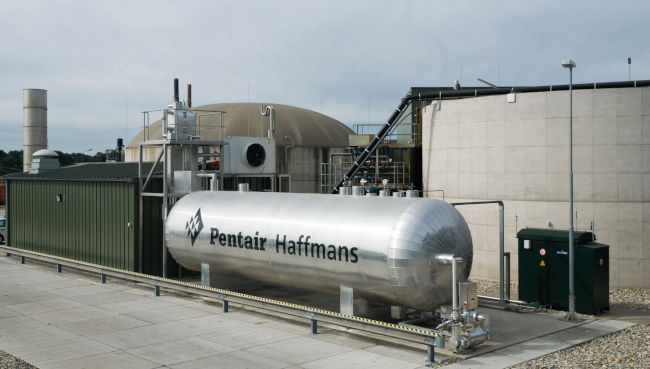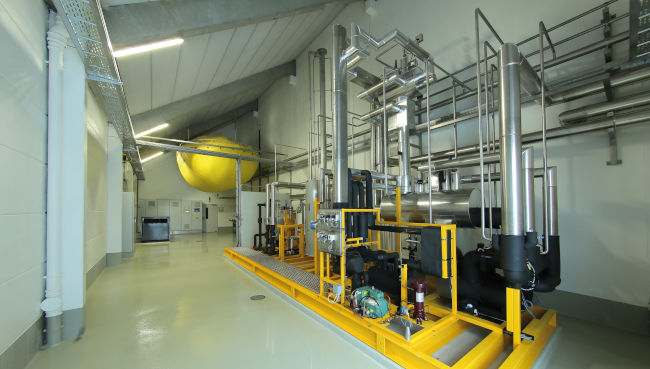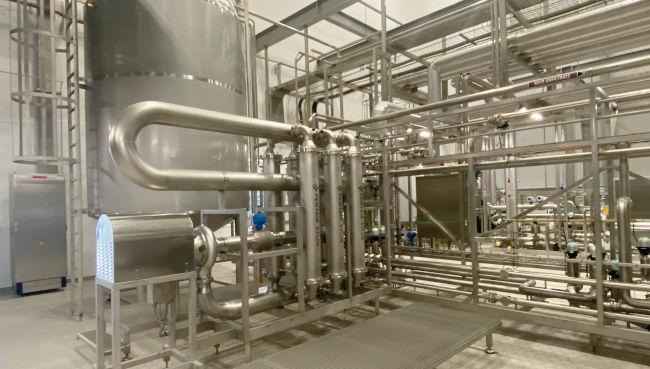“Change is picking up speed” – Dr. Roland Folz on the brewing and beverage industry
Shaping change | How are companies in our industry positioning themselves for the future? We talked about it with Dr. Roland Folz from Pentair.
Dr. Folz, there are currently numerous challenges in the brewing and beverage industry. What is the most urgent and how is Pentair approaching it?
Dr. Roland Folz: The most pressing challenge of our time would be tackling environmentally relevant issues effectively and creating solutions for them.
The long-term effects of pollution, and the rise in the earth’s temperature with all its more or less foreseeable consequences, are issues that need our immediate attention. If we do not reduce CO2 emissions significantly, there will be tremendous upheavals in the long run, like with Covid-19 and the current wars. Climate change will exacerbate most of the issues we are currently experiencing.
Part of our business is plant manufacturing for the brewing and beverage industry, where we aim to offer our customers sustainable concepts and energy-efficient systems. Sustainability has always been part of Pentair's corporate philosophy. However, current developments have shown us that investing so heavily in research in recent years was a step in the right direction.
How does Pentair deal with these issues?
Dr. Folz: Covid-19, in particular, but also the Ukraine war and the energy crisis, has markedly changed many day-to-day business processes around the world. For example, the pandemic lockdowns imposed in some countries disrupted global supply chains & increased demand for raw materials. Overcoming these new challenges requires breweries and beverage producers to adopt more agile and efficient practices.
And how did you deal with COVID-19 at Pentair?
Dr. Folz: We quickly suspended our standard working methods in February 2020. Trips were canceled, and we directly switched to remote working. For us, the health and well-being of our employees, customers, and communities always come first.
The new way of day-to-day working went really well after such a sudden change. We utilized technology in new ways: approvals on construction sites worked via video conferencing. All colleagues did really well, I have so much respect for such adaptability and resourcefulness!
Fortunately, we are back to on-site appointments again. Online meetings are efficient, but exchanging ideas with colleagues and business partners in person is essential in the long term. Trust is built primarily through direct exchange. We don't have to get on the plane for every little thing, so our travel workload has leveled off at a moderate level. In most areas, there will continue to be a good mix of presence in the office, screen time in the home office, and personal meetings. In most areas, there will continue to be a good mix of face-to-face work in the office and remote work from the home office.
How has Covid-19 impacted the business?
Dr. Folz: Despite the pandemic, we had virtually no idleness. Overall, 2020 and 2021 were even solid years for Pentair, mainly due to the high demand for plant engineering.
However, most breweries did not experience strong business development.
Dr. Folz: Yes, our customers in the brewing industry were hit hard during the Covid-19 pandemic because of the drop in demand, which meant many had to put investments on hold. Fortunately, the general business situation has returned to normal, a good sign for the industry. Most of our brewery customers are now catching up on investments for their current challenges – orders for efficient systems are again at a high level. Since this year, all our business areas have been on a strong growth trajectory.
How did Pentair react to the Ukraine war?
Dr. Folz: I'm proud of how quickly we exited business in Russia and Belarus. Politically it was a very easy decision; there was no other way for us. Economically, but above all, collegially, it was and is not that easy. We have been with many of our local colleagues for years and have done everything we can to support them as best we can.
And what about the supply chains?
Dr. Folz: The situation has largely returned to normal in most areas. At Pentair, we have always attached great importance to a good balance of different suppliers in order to maintain a certain degree of independence. The experience of Covid-19 has shown once again how important this is. We could also plan and serve this year's increasing possibilities with our suppliers.
How has your business changed since the crises?
Dr. Folz: The energy crisis shows that transitioning to alternative energies and greater energy efficiency is imperative and, thankfully, gaining even more momentum.
A lot is going on in development right now and fast. At Pentair, we also build biogas-to-biomethane upgrading plants that produce higher methane-yielding, renewable natural gas and biofuels which can aid in decarbonizing the energy and freight sector. We also provide carbon capture solutions.
Especially in the beverage industry, we are noticing that system efficiency is becoming increasingly important. The reasons for the investments lie first and foremost in the security of supply and in costs, but also increasingly for climate protection reasons.
What about skilled workers?
Dr. Folz: Covid-19 has not caused us a significant shortage of skilled workers. Our business is growing strongly and consistently, so we have an enormous need for people with strong technical backgrounds. We are always looking for qualified workers, especially in biogas processing and carbon capture growth markets, i.e., carbon dioxide recovery and use. Of course, this also applies to our growing brewery business.
Today, colleagues from over 70 countries work in the biogas processing business area. There is a strong enthusiasm, especially among younger people, for sustainable energy production. We attach great importance to a good mix of experienced and young employees who can learn from one another.
How do you assess the development of these topics for the future – both for yourself as a company and for the industry as a whole?
Dr. Folz: There is a return to local and stable supply chains throughout the brewery industry, a clear trend that Covid-19 has reinforced.
Awareness of more climate protection has long since arrived in the industry. Almost all the companies I follow have set sustainability goals and report progress to the public – or smaller companies do so simply because they are convinced of it.
One of our corporate goals is to make the most of the resources we use and enable our customers to minimize their environmental impact.
We have observed for several years that sustainability parameters are one of the most critical factors in bringing new plants to market. Good examples of this can be found in each of our product groups, be it CO2 recovery, diatomaceous earth-free membrane filtration, or our hygienic and aseptic valves, to name but a few.
In addition, more and more breweries are opting for investments where sustainability criteria are valued higher than a quick return on investment. This is also an indication for us to develop more deeply in these areas.
Great challenges can also produce great innovations…
Dr. Folz: Yes, definitely. Those who react flexibly and thoughtfully to new market conditions will benefit in the long run. Every crisis can create opportunities.
Examples can be found in each area mentioned: innovations that focus on sustainability, value engineering as an answer to supply chain difficulties, or organizing work more efficiently with a mix of home office, on-site and business trips.
Where do you see future fields of activity? How are you preparing for this?
Dr. Folz: Throughout the brewing industry there is a return to local and stable supply chains, a clear trend that has been reinforced by Covid-19. The awareness for more climate protection has long since become key in the industry. Almost all the companies I follow have set sustainability targets and report their progress to the public – or smaller companies do it simply because they are convinced of it.
Our solutions for water treatment, biogas upgrading, and CO2 recovery help our customers turn waste into streams of income. We help breweries ideally become CO2 self-sufficient by enabling them to produce their own supply of beverage-grade CO2. And our membrane filtration solutions help ensure access to the right water quality.
Quite new, we offer Pentair Q, our Internet of Things platform that collects, processes, and visualizes data from complex industrial operations in real time, allowing for better, more informed operational decisions. Real-time data like this enables us to work with our customers to quickly identify the potential for more efficient coordination of their work processes and the use of energy and materials.
Why is it important for your customers to start thinking about investments now?
Dr. Folz: We can assume that energy costs will not fall back to pre-crisis levels any time soon. That’s why low energy and water consumption and raw material efficiency are now more than ever a competitive advantage. We can advise on which investments are most worthwhile and in which order.
For various reasons, the price of CO2 is acutely higher than ever before. Investing in CO2 recovery and preventing possible bottlenecks is worthwhile, with very short payback periods.
In the short term, however, we will have to deal with two unknowns: rising inflation and a looming recession. We assume that our growth areas will not be affected – developments are solid and stable. However, more traditional businesses will not have exact growth forecasts.
What are your demands on politicians?
Dr. Folz: At an international level, the aim must – and in principle always – achieve as much stability as possible and find answers to climate change. If it is clear to companies that it is worthwhile to invest in sustainable projects and technologies in many ways, we will come a good deal closer to good solutions for environmental issues.
Political decision-makers at national and regional levels can create conditions for companies to operate sustainably. Companies that lead the way as drivers of innovation should be supported. Promising sustainable technologies often need start-up assistance, but their use pays off over many years for climate protection and a cleaner, local environment.
Dr. Folz, thank you very much for the interview!
The questions were asked by BRAUWELT editor-in-chief Dr. Lydia Junkersfeld.
Keywords
interview brewery plants company news business strategies international beverage industry
Authors
Lydia Junkersfeld
Source
BRAUWELT International 2023
Companies
- Pentair, US Corporate Office, Minneapolis, United States





